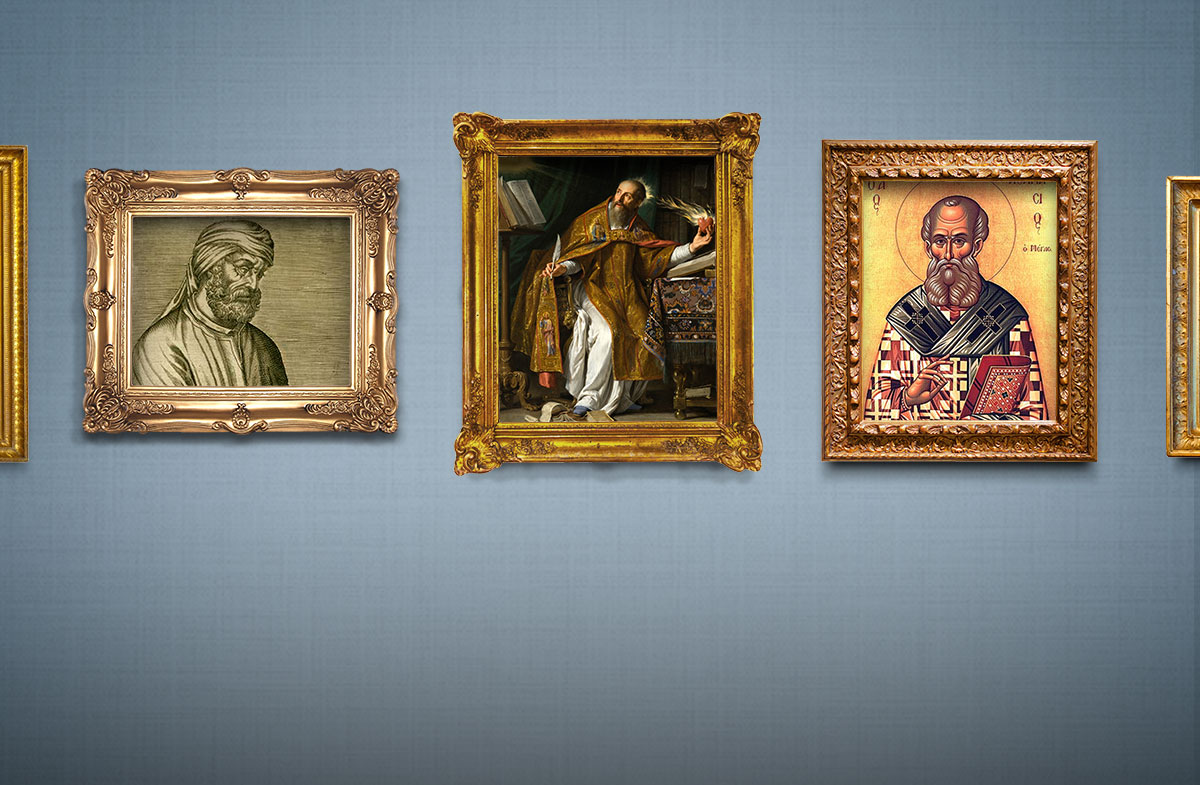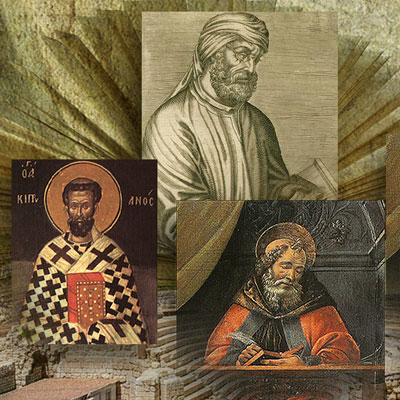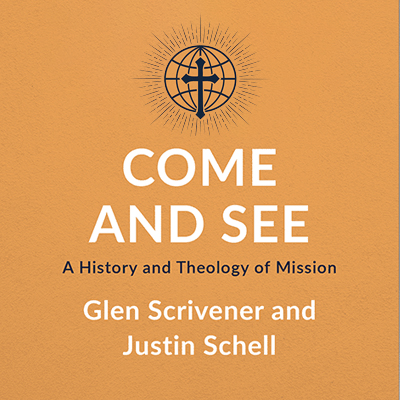‘Every kid in my youth ministry is a Pelagian.’
I was surprised to hear this statement from a friend, a faithful minister in the Lord. So I asked, ‘What do you mean?’
Without hesitation, he answered, ‘Somehow almost every kid has been taught—perhaps by parents, perhaps by the Christian subculture, that the way to be right with God is to not drink alcohol, have sex outside of marriage, do drugs, or murder. They believe that if they can just behave well enough, they can be saved.’
This conversation occurred in the midst of a church history class I was facilitating. We were looking at the life and theology of Augustine. Augustine was the great African bishop in Hippo, today’s Algeria, who championed the truths of Scripture against the works-based salvation preached by Pelagius. In Pelagianism, the cross is rendered unnecessary, for you can be good enough to save yourself. At the council of Carthage, Pelagianism was rightly declared heretical.
We wrestled for the next several minutes, asking ourselves, ‘How might Augustine bring the truth of Scripture to bear on a 21st century ministry?’
I think that was the day that my students started to understand the importance of knowing our theology and history handed down throughout the ages. Whether you call it pharisaism, Pelagianism, legalism, or simple works-righteousness, you will find youth groups and churches filled with this 1,600-year-old challenge to the gospel and to God’s mission.

Theology Flourishes in Missional Contexts
The late British mission historian Andrew Walls spent a career helping the global church see that theological scholarship needs a ‘renaissance of mission studies’. If it is to be called theology—the knowledge of God—then surely it ought to be concerned with making God known.
If one looks at church history, it is easy to see that our collective best theological works come out of times of deep missional engagement. The early church’s proximity to Judaism and various forms of Gnosticism forced us to articulate robust and biblical doctrines such as the Trinity and the full deity and humanity of Christ. African theologians such as Tertullian, Athanasius, and Augustine were critical voices, along with Justin Martyr, Ireneaus, and the Cappodocians, all from Asia.
The European Reformers, in response to drifting Catholic dogma, championed that our salvation is in Christ alone, by grace and through faith alone, to the glory of God alone. We know this because of the supreme authority of Scripture alone. These rich doctrinal statements were hammered out ‘on mission’, in a context where quasi-Christianity, animism, and human philosophy held sway.
Perhaps these are the examples best known in the West, yet Christians in Asia and Africa throughout the early and medieval periods were similarly engaging false religions, from Zoroastrianism to Islam and many others besides, faithfully bringing Scripture to bear on the claims of manmade religions, ideologies, and philosophies.
Article
Lessons from North African Church History
We have much to learn about unity and diversity from the Donatists and Berbers.
Indeed, Walls is correct. Theology flourishes in missional contexts. I’m afraid, however, that many people will read Walls’ encouragement and not realize, as I believe he did, that the reverse is also true.
‘If theology needs a renaissance of mission studies, then it is also true that missiology needs a theological renewal as well.’
If theology needs a renaissance of mission studies (being on mission forces us to think more clearly about God and bring that to bear on all of life), then it is also true that missiology needs a theological renewal as well (the faith we have received from the church throughout history provides a strong foundation for the mission of today). Walls not only called for missional theologians, but also theological missionaries.
The Reformers were able to engage false doctrine and superstitious culture by returning ad fontes, ‘to the sources’. They went back to the Greek and the Hebrew, back to the Old and New Testaments, and back to the earlier, faithful teaching of the church.
The result was a missional movement that resulted in millions of new believers, thousands of new churches planted, the launch of the Bible translation movement, and the engagement of all believers—not just the clergy—as a holy priesthood, a missional force composed of pastors and potters, missionaries and mothers. Our modern business as mission movement, for example, would find a good friend in someone like, say, Martin Luther.
As we have seen, in many contexts today, we find Christians who are, practically speaking, Pelagian. Augustine can help us here. In other places, Christians are encountering Mormon missionaries and the Jehovah’s Witnesses. The church fathers have already dealt with the heresies trumpeted by such cults. What could we learn in our witness to Muslims from John of Damascus, Raymond Lull, and Aquinas? We can be tutored by Christians of the past for the mission of today.
And we must remember that our task is a theological one. No amount of zeal or strategy can move a single man, woman, or child from the kingdom of darkness to the kingdom of the beloved Son.
The social sciences can be a tool for the missionary, but it cannot regenerate a dead heart. Prosperity theology is an unbiblical teaching harming lives today and defaming the name of Christ. It is false theology. We need true theology.
Our Great Inheritance
Perhaps we in the global mission movement think of theology as simply cold, dead facts that do not impact our lives. It’s no wonder, then, that we do not see its importance in the mission. But that’s not what theology is.
‘Perhaps we in the global mission movement think of theology as simply cold, dead facts that do not impact our lives. But that’s not what theology is.’
Theology is the revolutionary work of destroying ‘arguments and every lofty opinion raised against the knowledge of God, and taking every thought captive to obey Christ’ (1 Cor 10:5). That is what it is for: dismantling false ideas of God, man, sin, salvation, creation, flourishing, life, death, money, sex, and gender—and heralding the truth to the glory of God. The gospel—the good news, the truth, of what God in Christ has done—is the very power of God for salvation.
In Hollywood today, it seems that every new movie is a remake. Old movies, old comic books, old stories are dusted off, dressed up, and put forward for the 21st century movie-goer. Similarly, today’s manmade ideologies and false religions are generic retreads of the past.

In the history of the doctrines of the church, we find robust, biblical answers to today’s challenges as we remember our theology. As we study church history—our history—we see men and women wielding that theology in missional, fruitful ways. We can learn from their theology and their methodology.
‘Mission—if it is God’s mission—needs church history and theology.’
Even as we explore how Scripture speaks to and informs our cultures today, we should remember that we have this great treasury of faithful biblical interpretation in the historic church. Even as we do theology in our current contexts, we have inherited riches from our ancestors in the faith.
These riches will inform and rebuke us. Just as I am apt to be blind to my own cultural presuppositions, 21st century Christians are likewise blind to some of the folly of our age. C.S. Lewis warns against ‘chronological snobbery’ which rejects the old simply for being old, not realizing that previous generations have the ability to see things which we are now unable to see. We need their critique.
Even if my church, organization, network, or denomination is quite young, we all find ourselves downstream from fruitful missionary-theologians of past generations. What a rich inheritance!
So let us agree with Andrew Walls that theology needs mission. And simultaneously recognize that mission—if it is God’s mission—needs church history and theology.
book
Come and See: A History and Theology of Mission
Justin Schell
Learn more about how our history and theology can empower our mission in Justin’s latest book.
Photo Credits
Lars Kenseth, The New Yorker, 5 September 2022 issue
Saint Augustine by Philippe de Champaigne, Athanasius von Alexandria and Tertullian



